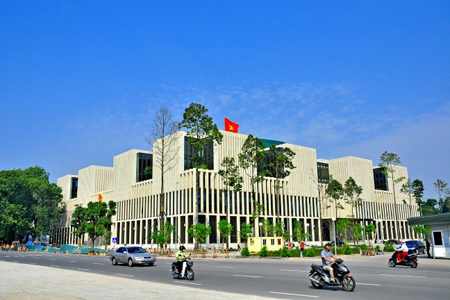The National Assembly is the governing body of the Socialist Republic of Vietnam. The country's President is the Head of State. The executive branch (i.e. the Government) is composed of People's Committees at provincial...
The National Assembly is the governing body of the Socialist Republic of Vietnam. The country's President is the Head of State. The executive branch (i.e. the Government) is composed of People's Committees at provincial, district and communal levels. The legislative branch, also represented at each administrative level, is composed of elected People's Council. The People's Court, present at provincial and district levels, form the judicial branch. Vietnam's system is rather unusual, as it comprises yet a fourth branch called the Supreme People's Procuracy. It is a one-party state with the Communist Party reigning supreme.

If public management and political science is your cup of tea: DO ask all the questions you want but always show respect for the country's institutions. DON'T expect all Vietnamese citizens to know or be able to explain all of their institutions. Just think how many people in your country would be able to describe the political system that governs them. DON'T indulge in the 'good guys-bad guys' bipolar view of the world. Reality only comes in shades of grey. And when you catch yourself dividing the world into two categories, 'Communists' and 'non-Communists', ponder the following definition: "Capitalism is the exploitation of man by man Communism is the opposite". And all other political systems we could add are a blend of these two.



